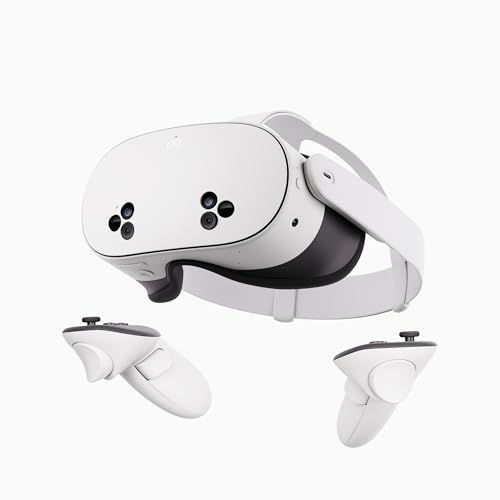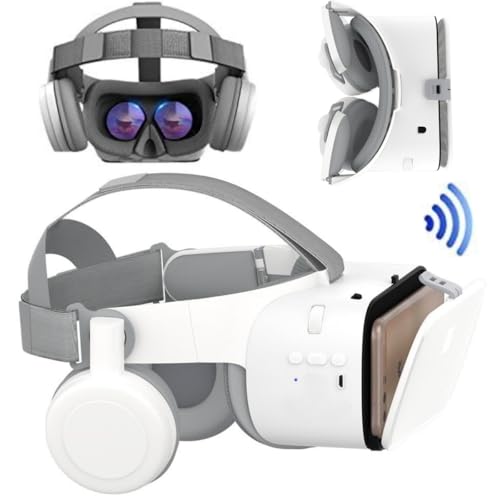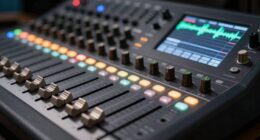Today’s businesses face a challenge as consumer behavior keeps changing. They know analyzing the market is complex. But, the amount of data can be too much. They need more than guesswork; they require precision and the courage to try new things. AI in market research is a game-changer. It lets companies truly understand their customers and plan better. Imagine drinking a beverage that’s exactly to your liking, or getting a product made just for what you want. AI makes this possible, helping businesses find insights that used to be hidden.
Thanks to tech progress, companies can now use AI to quickly look through lots of data from different places. This includes social media, customer feedback, and surveys. The insights they get can help them make decisions and improve how they operate. In this article, we’ll talk about how AI is changing market research. We’ll look at what it can do and how it helps businesses. Knowing about this change is crucial for any business that wants to succeed in today’s competitive world.
Key Takeaways
- AI tools facilitate faster, more accurate data collection and report generation.
- Natural Language Processing (NLP) enables real-time sentiment analysis, enhancing consumer insights.
- Generative AI can process large datasets, revealing hidden patterns and trends.
- Businesses can leverage predictive modeling to forecast future consumer behavior effectively.
- AI technologies streamline market research tasks, allowing human researchers to focus on actionable insights.
- Integrating AI in research processes can lead to more efficient decision-making and strategy development.
The Evolution of Market Research
The field of market research has changed a lot over time. In the past, surveys and focus groups were mainly used. These methods helped create products. But, they had some big downsides. They took a lot of time and money, and the data could become old fast.
Traditional Methods and Their Limitations
Market researchers often used these old ways to learn what consumers wanted. Even though these ways were effective, they had problems. They couldn’t give Real-Time Consumer Insights. This meant that companies were slower than their competitors in adapting to new trends. Challenges they faced included:
- Long times to collect data.
- Possible biases in focus group talks.
- Big costs to do surveys.
The feedback from these old ways could arrive too late. By then, what consumers wanted might have changed. So, researchers look for new methods to stay up-to-date and effective.
The Need for Real-Time Insights
In today’s quick-moving markets, having fast and useful insights is key. With 93% of market researchers seeing AI as a chance for growth, and 80% thinking it will help the field, the shift to Real-Time Consumer Insights is critical. AI helps by enabling:
- Quick analysis of data as consumer behavior changes.
- Predictive analytics to guess future market trends.
- Fast automation of cleaning data and making surveys fit local needs.
By using AI, companies become more efficient and get more accurate insights. These advancements in the Evolution of Market Research let companies respond better and faster to what customers want. This gives them an advantage over others.

Meta Quest 3S 128GB | VR Headset — Thirty-Three Percent More Memory — 2X Graphical Processing Power — Virtual Reality Without Wires — Access to 40+ Games with a 3-Month Trial of Meta Horizon+ Included
NO WIRES, MORE FUN — Break free from cords. Game, play, exercise and explore immersive worlds — untethered...
As an affiliate, we earn on qualifying purchases.
Understanding AI in Market Research
AI is changing how we handle data in research. The AI Definition shows it’s made to think and learn like us. With more data coming in, old ways can’t keep up. AI helps process large amounts of data quickly.
It finds insights that were hard to get before. This is why AI tools are becoming key in research.
The Definition and Role of AI
Artificial Intelligence is critical in today’s market research. It uses algorithms for deep analysis. AI spots trends and understands customer feelings in feedback.
This is key for gathering data. It helps businesses make decisions with clear insights.
How AI Transforms Data Gathering
AI makes collecting data fast and accurate. It automates getting surveys and information. This speeds up the process.
Techniques like Natural Language Processing (NLP) review different data sources. This includes social media and reviews. By understanding customer details better, marketing can be more targeted.
This way, research is quicker and insights are deeper. Overall, AI greatly improves how data is gathered and used.


Meta Quest 3 512GB | VR Headset — Thirty Percent Sharper Resolution — 2X Graphical Processing Power — Virtual Reality Without Wires — Access to 40+ Games with a 3-Month Trial of Meta Horizon+ Included
NEARLY 30% LEAP IN RESOLUTION — Experience every thrill in breathtaking detail with sharp graphics and stunning 4K...
As an affiliate, we earn on qualifying purchases.
AI-Powered Tools for Market Analysis
The business world is changing fast, and AI tools are making a big difference. They help companies understand what people want and like. This is done using technologies such as Natural Language Processing and advanced Data Analytics.
Natural Language Processing (NLP) Applications
Natural Language Processing (NLP) makes market research stronger. It lets businesses study what people say in texts, like social media posts and online reviews. This gives them a clear view of what people think as it happens. Tools like ChatGPT are great at finding useful insights quickly.
Data Analytics and Visualization Techniques
Data Analytics and visualization help explain big and complex data sets. They let researchers spot trends that guide their choices. Good visuals make it easier for everyone to understand the results. AI-driven tools, for example, Zappi’s AI Quick Reports, show how effective these methods are by providing insights on ad performance fast.

| AI Tools | Functionality | Industry Application |
|---|---|---|
| Gong by Crayon | Gathers competitor intelligence and profiles | Market Analysis |
| Zappi’s AI Quick Reports | Delivers instant ad performance insights | Advertising |
| ChatGPT | Assists in generating market research insights | General Market Research |
| Zappi’s Concept Optimization | Enables rapid iteration based on feedback | Product Development |
| Automated Market Research Platforms | Streamlines research processes | Various Industries |

Virtual Reality VR Headset, Phone VR Glasses for 3D Video Game Play for Adults & Kids, VR Goggles w/Bluetooth Headphones Compatible with iPhone 17 16 15 14 13 12 Pro Samsung Galaxy S24 S23 S22
PHONE VR HEADSET COMPATIBILITY: this phone virtual reality headset compatibles with iPhone 17 16 15 14 13 12...
As an affiliate, we earn on qualifying purchases.
Benefits of AI in Market Research
Using AI in market research brings big wins for businesses honing their strategies. AI tools enhance Market Research Efficiency by making data gathering and analysis smoother. Businesses enjoy faster insights and lower costs because of this.
Increased Efficiency and Cost-Effectiveness
AI speeds up the handling of data, tackling large amounts quickly. It takes over repetitive tasks, freeing up resources for more important work. This boost in efficiency cuts down costs. Companies see AI Benefits through savings from less manual work and better data control.
Enhanced Accuracy in Data Insights
AI can dig deep to find trends in how consumers act, raising the value of market research findings. With its high-tech algorithms, AI outperforms old-school methods in analyzing data. This means higher Accurate Data Insights. It leads to smarter decisions and strategies that match what customers want.


PRISMXR PC-VR Streaming Air Link Compatible with Meta Quest 3S/3/2 AX3000 WiFi6 VR Router, Replace Link Cable, Wireless Stable and Fast (AX3000)
Dedicated Connection by PrismPulse Mode: Puppis S1's uniquely crafted software, propelled by a powerful 1.3GHz Dual-core chipset, bridges...
As an affiliate, we earn on qualifying purchases.
AI in Market Research and Analysis
AI has become a key tool in marketing, helping businesses grasp customer behavior. It lets companies see future market trends and what customers like. With this info, businesses can tweak their plans to better fit sudden market changes. Additionally, AI allows businesses to create more personalized and targeted marketing campaigns. By analyzing customer data, businesses can implement smart AI strategies for retargeting, reaching out to potential customers who have shown interest in their products or services in the past. This not only increases the chances of conversion but also helps in maximizing the return on investment for marketing efforts.
Predictions and Consumer Behavior Forecasting
Artificial Intelligence is crucial in making correct guesses about what customers will do next. It looks at huge data sets with machine learning to find trends humans might miss. This helps companies prepare for new market trends.
Big names like Facebook, Coca-Cola, and Starbucks use AI to get better at market research. AI speeds up collecting data, saving time and effort. This helps staff focus more on making big decisions. Mixing AI with human smarts boosts efficiency, especially in research for business-to-business markets.
AI isn’t just about numbers. It uses sentiment analysis, facial coding, and voice AI to understand consumer feelings and thoughts. This means companies can make smarter choices about new products and ads. They can match what their customers want more closely.
Looking ahead, AI in market research will focus more on processing natural language, gathering data smartly, and being ethical. As these technologies grow, they’ll change how we see market analysis. They underline the importance of using AI to create better marketing strategies.

| AI Benefits | Impact on Market Research |
|---|---|
| Automated Data Collection | Saves time and labor |
| Predictive Analytics | Accurate consumer behavior forecasting |
| Sentiment Analysis | Insights into consumer preferences |
| Data Visualization | Clear presentation of trends |
| Natural Language Processing | Improved understanding of consumer intent |
Real-World Applications of AI in Market Research
Across various sectors, AI is changing the game in market research. For instance, E-commerce sites are using AI to better their services. Meanwhile, the electronics sector uses AI for predicting future trends. This shows how AI helps businesses improve their strategies.
Case Study: E-commerce Enhancements
An e-commerce giant turned to AI to analyze customer reviews. This led to better products on offer. By understanding what customers want, they matched their stock with demand. As a result, customers were happier, and marketing became more precise. AI helped make their operations smoother.
Case Study: Predicting Electronics Trends
Top tech firms are using AI to foresee electronics trends. They look at online chats and social media to understand consumer feelings early. This lets them launch new products at the right time. This shows the power of AI in making smart, informed decisions to stay ahead.

| Industry | AI Application | Outcome |
|---|---|---|
| E-commerce | Sentiment Analysis | Improved product offerings and customer satisfaction |
| Electronics | Predictive Analytics | Informed product launches and market adaptability |
| Marketing | Data Analysis Automation | Enhanced efficiency and decision-making speed |
Challenges Faced When Implementing AI
Organizations are starting to use AI for market research. But, they face several challenges. One big hurdle is data privacy and security. Keeping consumer information safe is crucial.
The law requires strict compliance to protect personal data. Marketers often struggle with using large data sets safely. They do this while trying to follow legal rules.
Data Privacy and Security Concerns
Data privacy stands out as a big issue when using AI in market research. A survey shows that 74% of marketers expect AI to be everywhere in offices by 2030. As AI tools handle more consumer data, they must protect it well.
If they fail, companies could face big fines. They could also lose the trust of consumers. People want to know their data is used ethically.
Bias in AI Algorithms
AI bias is a serious problem for businesses using AI technologies. A survey by DataRobot revealed data bias might lead to losing 62% of potential revenue. This shows how important it is to carefully choose data.
To reduce bias, it’s crucial to use diverse and representative data. This ensures fairness in AI’s analysis. Ethical AI practices are necessary for accurate and honest research results.
| Challenge | Details | Impact |
|---|---|---|
| Data Privacy | Regulatory compliance, consumer data protection | Loss of trust, potential legal penalties |
| AI Bias | Inaccuracies due to skewed data | Lost revenue opportunities, flawed decision-making |

The Role of Generative AI in Market Research
Generative AI is revolutionizing market research. It takes over tasks that require a lot of work. Now, researchers can spend more time on big-picture projects. They don’t have to deal with the same data tasks over and over. Thanks to this technology, companies can find important insights faster. They use smart algorithms for better data analysis and automated reports.
Automating Data Analysis and Reporting
Generative AI is changing how we do market research. It makes complex tasks simpler. Here’s what it helps with:
- Quickly working through big surveys, AI quickly looks at open-ended answers to find key themes and summaries.
- Helping make surveys, AI can put together questions and design surveys that fit the study goals well.
- Making proposals easier, AI helps make learning plans and summaries better and faster.
Suzy is an example of a company using generative AI to improve data work. This tech lifts data quality with biotic technology. AI tools like AI Screener Generation and AI Suzy Live Summaries give immediate insights. These automated systems also make sure data is private and safe.
Thanks to generative AI, market researchers are tackling more strategy-focused tasks. Building strong client relationships becomes key. They also need to skillfully use AI-gathered insights for clear business decisions. Today’s market calls for researchers to know both basic research and how to be smart with AI content.

User Experience and Interaction with AI Tools
AI tools have changed how we experience websites and apps. Businesses now focus more on User Experience. This is because AI Interaction helps in gathering and analyzing data quickly.
More and more market research pros are using AI. In fact, about 51% of UX researchers now use AI tools. And 91% are open to using them in the future. This shows that AI is becoming key in getting better insights and making smart choices.
Streamlining Research Processes
AI tools make things better and faster for users. For example, Looppanel offers over 95% accurate transcriptions. It also analyzes data much faster than old methods. ChatGPT helps with writing, answering questions, and coming up with ideas. It has a free version and a more advanced one for a small fee. Because these tools are useful and affordable, researchers like them.
There are many AI-powered tools that help with research. Here’s a look at some key ones:
| Tool | Key Features | Starting Price |
|---|---|---|
| Looppanel | High transcription accuracy, fast data analysis | $27/month |
| ChatGPT | Content generation, question answering | Free / $20/month (GPT 4) |
| Maze AI | Automated analysis of tests, auto-generated reports | $99/month |
| Sprig AI | Analysis of survey responses, sentiment detection | Free / $175/month |
| Notion AI | Writing assistance, summarization | $18/user/month |
| Userdoc | AI-generated user stories | $12/month |
| Synthetic Users | Scalable user testing | $99/month |
AI tools also make analyzing unmoderated tests easy. They help organize research too. This speeds up testing and product development. Better data and insights improve user experiences. This keeps businesses competitive in a fast-changing market.

Ethical Considerations in AI Usage
Businesses are using AI more and more today. This makes ethical thinking very important. When using AI ethically, being open and getting consent from users is key. Companies must be sure their AI does what it should while keeping user rights safe.
Transparency and Consumer Consent
For companies and their customers, trust starts with being open. It’s important for companies to tell people how they collect, store, and use data. The White House recently put $140 million into AI to help tackle ethical issues. This move, along with efforts by U.S. agencies to spotlight AI bias, shows a push to keep companies in check. They must avoid bias and make sure people know how their data is used.
The Importance of Ethical AI Practices
Making AI ethical is essential for responsible progress. Researchers focus on making AI easy to understand, especially in healthcare. There’s a big need for rules about who owns AI-made content. This helps with accountability. AI can also be used wrongly to spread false information or manipulate people. So, rules and standards are critical for keeping users safe from bias and false information.

Moreover, companies should create training to help workers adjust to AI changes. Using AI ethically can make customers happier and improve how a business works. As companies invest more in AI, tackling these ethical issues is crucial for keeping a good image and trust with customers. Mixing innovation with ethics leads to better and fairer AI use.
| Ethical Issues | Implications | Solutions |
|---|---|---|
| Bias in AI Algorithms | Affects hiring and loan approvals | Diverse data sets and fair testing |
| Transparency in Decision-Making | Consumer trust and clarity | Clear disclosures on data usage |
| Privacy and Security Concerns | Surveillance and hacking risks | Robust data security practices |
| Accountability in AI Development | Risk of misuse and ethical dilemmas | International regulations and agreements |
Future Trends in AI for Market Research
Future AI Trends are changing the game in market research. They make it possible to process information as soon as it’s received. This change helps businesses understand and use data better. Technologies today not only boost efficiency; they’re also changing how industries operate.
Experts believe that Augmented Reality (AR) will change how we learn about consumer habits. It will make the insights we gain more detailed and insightful.
Real-time Data Processing Innovations
Companies now crave instant insights more than ever. They’re using AI tools to get quick feedback from customers. For example, Voxpopme uses real-time processing to analyze feedback from focus groups and interviews.
This makes gathering and using data much faster and more relevant. It helps companies quickly adapt to new trends. Researchers find these tools let them focus on big-picture thinking rather than just data analysis.
Integration with Augmented Reality (AR) and IoT
Integrating AR into research is a big step forward. It lets businesses create real, interactive experiences with their products or services. This leads to better, more detailed consumer data.
Companies can watch how people interact with their products in virtual setups. As AI and IoT devices keep evolving, they’ll make gathering and analyzing market data even more effective. This promises more innovative ways of looking at market research.

Comparing AI and Traditional Market Research Methods
AI and traditional research methods offer different benefits. Traditional techniques, like surveys and focus groups, give deep insights. They let us understand people’s thoughts through real conversations. This approach gets to the heart of what people feel about market trends.
But, traditional methods can be slow and expensive. Doing surveys and focus groups takes a lot of work. This makes it hard for businesses to keep up with fast changes. Today, companies need information fast to stay ahead.
On the other hand, AI has its own strong points. It can look at huge amounts of information quickly. AI finds trends that humans might miss. This lets companies understand what customers want with great accuracy. They can then change their strategies fast to meet these needs.
The Market Research Comparison shows how AI can see complex patterns better than old methods. Netflix uses AI to see what viewers like. This helps keep people watching. AI takes info from places like social media and shopping records and analyzes it fast. It gives a full picture of what people are doing.
Even with new technology, traditional methods are still valuable. They offer a human touch that AI can’t. This can make the information from AI even more useful. Traditional methods help understand people’s emotions and thoughts.
To sum up, choosing between AI and Traditional Methods means seeing what each offers. More and more, businesses see how AI can change market research. But combining AI with traditional ways can make choices even better.

Enhancing Collaboration Between Humans and AI
The partnership between human moderators and AI tools is key in market research. It boosts the quality and insights of the data. Human Moderators add their deep understanding to the mix. Meanwhile, AI systems bring in speed and efficiency. Together, they create a strong team that makes data analysis better.
The Role of Human Moderators in AI Research
Human Moderators bring important benefits to AI Research. Their empathy and knowledge of context allow for a more detailed look at qualitative data. AI is great at handling big datasets quickly. But, it struggles with understanding emotions and complex social cues. Human Moderators, on the other hand, use their intuition and lived experiences. They help make sense of the data in a way that matters.
A study of 1,500 companies showed that mixing human skills with AI boosts performance. Businesses that integrate human knowledge with AI do better than those just automating to save money. This shows how teamwork between humans and AI is helping create new solutions in finance, healthcare, and marketing.

The University of California, San Francisco (UCSF) shows how effective this teaming can be. Their AI helps radiologists diagnose mammograms more accurately. In marketing, AI helps make ads and customer service chatbots smarter. Human insights make sure they hit the mark.
This teamwork is reshaping various industries. Blending human knowledge with AI opens the door to better customer service and new ways to solve problems. It lets systems evolve in real-time based on human feedback. This not only makes operations more efficient. It also ensures decisions are made with society’s values in mind.
AI enhances, rather than replaces, human roles. Organizations can count on Human Moderators to steer tech advancements. This partnership between human wisdom and AI speed is paving the way for major advances in market research.
Driving Innovation with AI Insights
AI is a game-changer in market research. It helps businesses find growth and stay competitive. By using smart algorithms, companies can spot new market opportunities.
AI analyzes big data, revealing key trends and what customers like. This info helps in making products and planning marketing better.
Identifying New Market Opportunities
About 44.1% of AI users focus on research, moving towards data-driven insights. The Boston Consulting Group’s 2023 survey found, companies using AI for research develop five times more ideas. This shows AI boosts creativity and innovation.
AI is reshaping how we understand shopper behavior too. For example, 34.5% of Gen-Z prefers AI chats over talking to people. Businesses can use this to improve how they communicate with young customers.
AI makes knowing different consumer groups easy. It uses data to spot unique market segments. Also, by understanding public opinion through natural language processing, companies can tweak their messaging and products quickly.

Using AI for predictive analytics lets companies foresee market trends. They can launch products that meet customer needs better. And, by using new testing methods, they save time and money compared to old ways.
Quick and successful new product introductions come from using AI smartly. It’s important for companies to think about AI ethics, like user privacy and data security. These factors are key when introducing innovations into the market.
With proper training and strategy, AI insights can make companies quick to adapt. They can take advantage of new chances in their fields.
Conclusion
AI is changing how we do market research, making it easier for businesses to keep up with fast data growth and what customers want. People have made 90% of the world’s data in just the last two years. This fact shows we need better ways to analyze data. AI improves how we gather data from different places and makes it more accurate and efficient.
By doing routine tasks faster, AI helps us analyze data more quickly. This can save time and might cut costs by up to 30% by 2035. Also, using AI can make decisions 20% more accurate and operations 30% more efficient. This is good news for businesses that use AI. They might see their marketing returns go up by 10-30%, opening up new chances for growth.
Yet, as AI remakes market research, we must mix its power with human know-how and think about ethics. The future will likely bring even smarter AI tools. These tools will help us connect more deeply with customers while we handle issues like privacy and bias carefully. By paying attention to these factors, companies can do well now and be ready for the future market.










